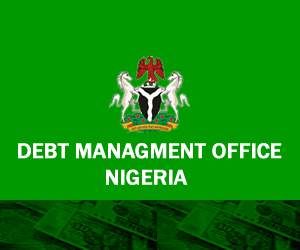March 2029 Eurobond Yields Surpass 9% Amid Market Volatility
The Debt Management Office (DMO) has released a detailed report on the Nigeria Eurobonds’ performance, stating March 2029 Eurobond had a closing price of $97.375, translating to a yield of 9.016 per cent.
The Debt Office provides insight into the closing prices and yields of these bonds denominated in US dollars which are essential instruments for the government in raising funds from the international market as of Wednesday, January 8, 2025
Among the bonds listed, the 7.625 per cent November 2025 Eurobond recorded a closing price of $99.774, with a yield of 7.396 per cent. Similarly, the 6.500 per cent November 2027 Eurobond ended the trading day at $95.238, offering investors a yield of 8.218 per cent. The 6.125 per cent September 2028 Eurobond closed at $91.085, resulting in a yield of 8.867 per cent, reflecting an upward trend in yields for longer-term maturities.
The 8.375 per cent March 2029 Eurobond had a closing price of $97.375, translating to a yield of 9.016 per cent. Likewise, the 7.143 per cent February 2030 Eurobond and the 8.747 per cent January 2031 Eurobond closed at $91.164 and $96.954, yielding 9.244 per cent and 9.325 per cent, respectively. These bonds highlight the increasing returns required by investors for extended maturities in a volatile market.
Further along the curve, the 9.625 per cent June 2031 Eurobond recorded a price of $100.569, with a yield of 9.429 per cent, while the 7.875 per cent February 2032 Eurobond closed at $91.117, yielding 9.542 per cent. The 7.375 per cent September 2033 Eurobond, on the other hand, ended at $86.591, offering a yield of 9.609 per cent.
The 9.248 per cent January 2049 Eurobond and the 8.250 per cent September 2051 Eurobond closed at $91.516 and $80.946, yielding 10.154 per cent and 10.311 per cent, respectively. These figures underscore the elevated risk perception associated with Nigeria’s longer-term debt obligations.
The data reflects Nigeria’s continued engagement in the international financial markets, with yields closely linked to global economic conditions and investors’ risk appetite. The government’s ability to manage debt and implement effective fiscal policies will be pivotal in ensuring investor confidence and achieving sustainable economic growth.


